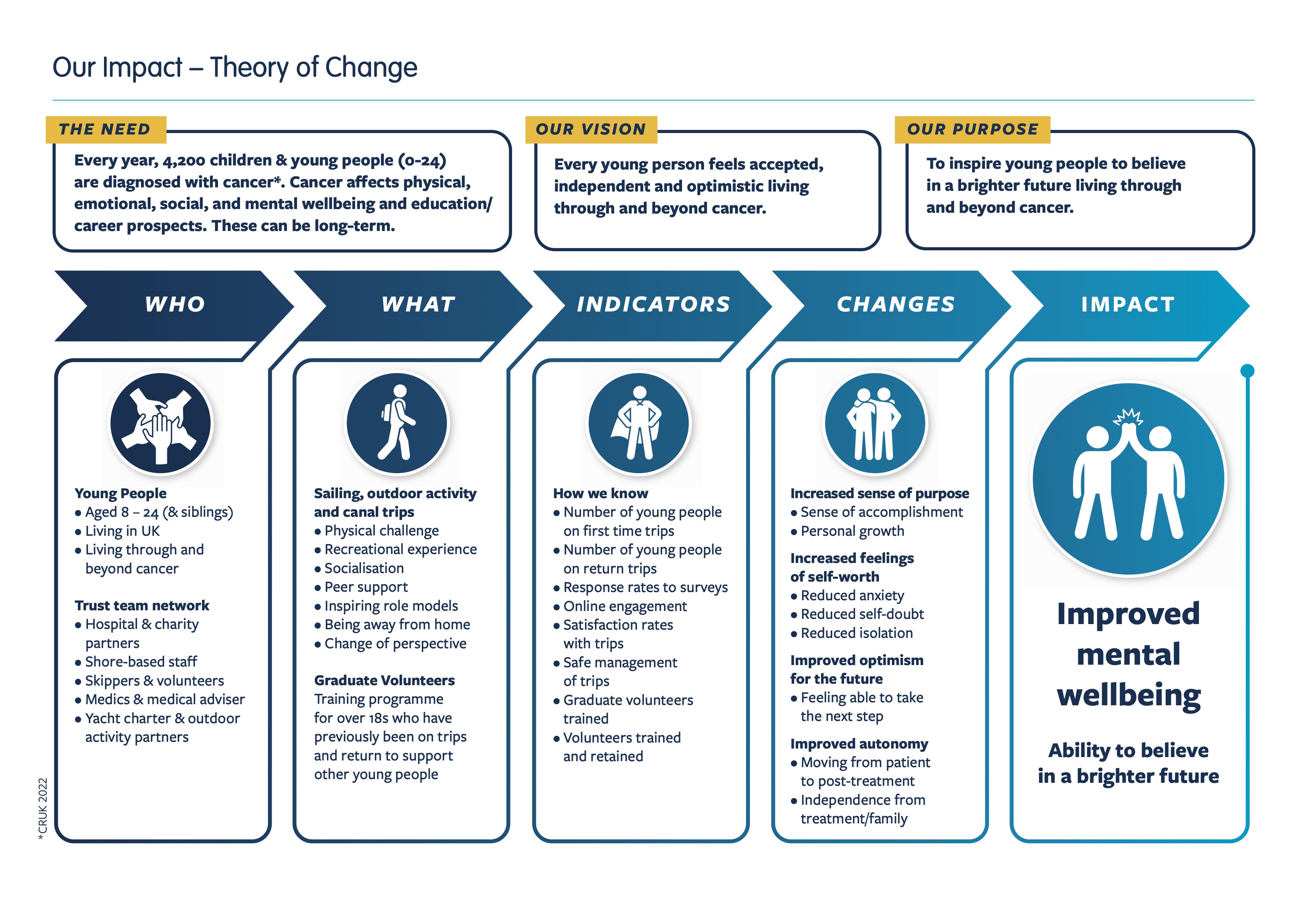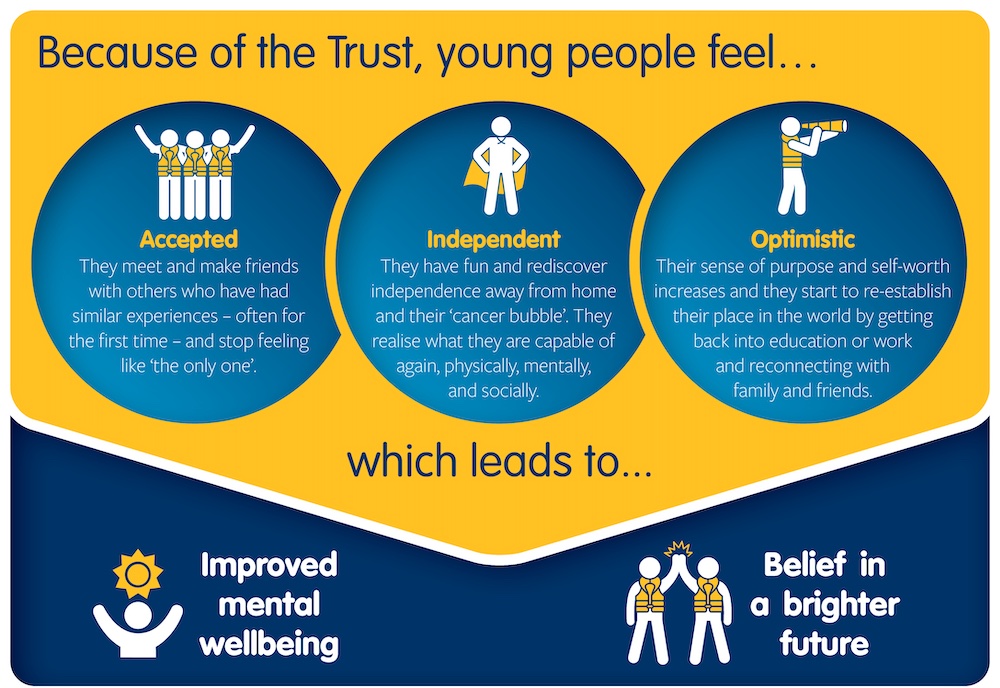17 March 2022
In February 2020, we launched 'Better connections, bigger impact - our Ambitions for 2020-22'. This laid out the Trust’s three-year strategy for building stronger relationships with, and making a greater long-term difference to, more young people who had been treated for cancer.
One of our nine Ambitions was to ‘Know Ourselves’ – to review our purpose, brand story and core messages to evolve how we think about, communicate, and raise awareness of the Trust.
Despite the pandemic, that spring we started working with social impact specialists, Trust Impact, to explore how and in what ways the Ellen MacArthur Cancer Trust made a difference to young people. This included interviewing young people, families, charity and hospital partners, our team, and other key partners to really understand what the Trust meant to them and why.
What we heard was the Trust was about so much more than ‘rebuilding confidence’; that some young people didn’t need their confidence rebuilt, that they gained other things from the Trust, that ‘confidence’ was a complex concept with many aspects, that it was almost something bigger.
Our Patron, Dame Ellen MacArthur, has always said the Trust is not really about the sailing, but the environment being on a boat creates. Sailing is just the vehicle and on the boat some magic happens. What we heard was what that ‘magic’ meant to different young people.
This led to Trust Impact revising our Theory of Change. A Theory of Change is simply charity-speak for understanding the effect of what you do on the people you support. We learned that through our sailing and outdoor adventure activities young people experience four main changes.

‘Possibility’ was a common theme from the research.
“Because of the Trust I could now…” and that sentence would finish with anything from apply for university to go to a sleepover at my friend’s house. And that’s the key. The Trust supports young people aged 8-24. What a young person gains will vary dramatically depending on what stage of their young life they are at.
Whether it comes from being away from home, meeting others who ‘get it’ and understand how they feel, standing at the helm and pulling sails on a boat, talking to volunteers who were themselves supported by the Trust after cancer treatment, or just having the permission to have fun, young people – regardless of their age – feel able to do something that they couldn’t before their trip(s).

It is not about what the Trust does, but the difference the Trust makes, and that is aspirational, young people believing in a brighter future, tomorrow or in 10 years’ time.
This is something that will keep evolving, as before and after their trip we will ask each young person how they are feeling (using the recommended Warwick-Edinburgh Mental Wellbeing scale) and use this feedback to see where and in what ways we have our greatest impact, to then do more of the things that work best.
Now we ‘Know Ourselves’, we need to achieve another of our Ambitions to ‘Be Consistent’ – to speak confidently with one voice about the difference the Trust makes to young people living through and beyond cancer.
Why? So more young people and families really understand how the Trust can help as they start to try to make sense of the world and their place in it after their treatment has ended.
That is why we have now produced new Style Guidelines, incorporating our updated purpose and ‘Believe in a brighter future’ tagline, to help us ‘Be consistent’ and clearly communicate our impact to the Trust community and the wider public.
Every young person should feel accepted, independent, and optimistic living through and beyond cancer. By putting this out into the world, we hope more young people will turn to the Trust for support when and if they need it.
We want to inspire more young people to believe in a brighter future.